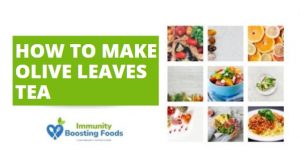How Long After Taking Vitamins Can I Drink Tea?
Can I take vitamin C after drinking tea? Caffeine also makes you pee more, which can lower the amount of water-soluble vitamins (B-complex and C). So, it’s recommended to wait an hour after your morning cup to take supplements.
How Tea Affects Vitamin C Uptake
Tea can mess with how your body takes in vitamin C, especially if it’s black tea. There’s this thing called tannins in tea that grab onto the vitamin C and make it harder for your body to use it. But how much it messes with your vitamin C depends on a few things:
Does vitamin C survive in tea? Green tea does have Vitamin C, but it’s so little that the vitamin usually disappears once the tea is brewed in hot water.
1. What Tea You’re Drinking
Black tea has the most tannins that cause this trouble, followed by green tea and oolong tea. But herbal teas usually don’t have these tannins causing the issue.
What vitamins does tea deplete? Caffeine significantly reduces the absorption rate of Iron in your intestines – believed to be up to 80%. Summary: Black tea and Green tea stop good absorption of Iron, Vitamin D, and B-Complex vitamins.
2. How You Brew Your Tea
If you let your tea sit in hot water for longer or use more tea leaves, it adds more of these tannins that mess with the vitamin C.
Can I drink tea after eating orange? For fruits like mangoes, strawberries, oranges, blueberries, etc. that have high acid levels, after eating them, you can have green tea or white tea.
3. Other Nutrients Hanging Around
Some nutrients, like certain types of iron, help your body take in vitamin C better. So if those are present, it might help offset the trouble caused by the tannins.
Can I mix tea with vitamin C? At least one study has found that green tea and Vitamin C work well together, with the Vitamin C increasing the amount of antioxidant catechins in the tea.
Research Findings on Tea and Vitamin C
Some smart folks did research on this. One study found that black tea made it 60% harder for your body to use vitamin C. But another study said green tea didn’t really cause much trouble in that department.
What can you not mix with Vitamin C? Here are some things you should never mix with vitamin C: Alpha Hydroxy Acids (AHAs), Beta Hydroxy Acids (BHAs), Salicylic Acid, Benzoyl Peroxide, Retinol.
Tips to Avoid Tea Blocking Vitamin C
If you want to make sure your tea isn’t messing with your vitamin C game, try these things:
- Pick herbal teas instead of black, green, or oolong ones.
- Don’t let your tea sit in hot water for too long when you’re making it.
- Have foods or supplements with vitamin C when you’re eating or snacking.
- If you’re a fan of black, green, or oolong teas, try having them when you’re not munching on vitamin C-rich foods.
What should you avoid after drinking tea? 8 foods to steer clear of after tea: Lemon juice, Fruits, Turmeric, Curd, Iron-rich veggies, Besan foods, Frozen food.
Overall Impact of Tea on Vitamin C Levels
For most people who eat a good mix of foods, tea isn’t going to completely wreck your vitamin C levels. But if you’re worried about not getting enough vitamin C, these tips might help you not stress about the impact of tea on your vitamin levels.
What should you take with Vitamin C for better absorption? Vitamin C is best taken raw. The best way to take it for the most use is to take it with iron. That’s why people often drink orange juice with cereal. The iron in the cereal helps you use the vitamin C in the orange juice better.


